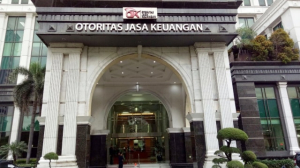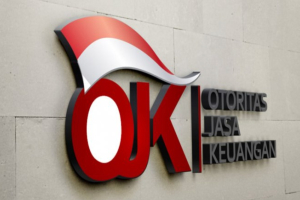OJK: Investment in Indonesian startups plummets 87% in H1 2023
The Financial Services Authority (OJK) reveals that investment in Indonesian startups witnessed a staggering 87 percent year-on-year decline, plummeting from US$ 3.3 billion to a mere US$400 million or approximately IDR 6.3 trillion during the first semester of 2023.
Startup investors may include private companies, banks, accelerators or incubators, individuals, and venture capital.
As of November 2023, OJK recorded outstanding disbursements from venture capital companies to startups amounting to IDR 17.39 trillion. This figure marked a decrease compared to the same period in 2022, which stood at IDR 18.01 trillion.
"However, it's only the last three months of 2023 that saw negative growth. The other months were positive," said Agusman, Executive Head of Supervision on Financing Institutions, Venture Capital Companies, Microfinance Institutions, and Other Financial Institutions at OJK, on Tuesday, January 23, 2024.
"If observed, the decline in the last three months is due to unfavorable global factors," Agusman added.
Funds from venture capital companies were distributed to around 2.28 million startups and SMEs. Of these, 1.71 million were located on Java Island, 573,070 outside Java, and 44 abroad.
More than 98 percent of these startups and SMEs were financing debtors, with around 1.88 million operating in the trade sector, both wholesale and retail. Google, Temasek, and Bain and Company reported a decline in funding to Indonesian startups, both from foreign and domestic investors, in the first semester of 2023.
Chairman of the Indonesian Startup Venture Capital Association (Amvesindo), Eddi Danusaputro, said investors have become more selective in investing in startups.
Additionally, declining macroeconomic conditions, weak consumer demand, and high benchmark interest rates have led to a decrease in startup revenues.
The decline in revenue has forced startups to extend their runways by spending funds more efficiently to ensure sustainable growth, sometimes through employee layoffs.
"Investors will continue to seek funding deals, especially for early and later-stage startups. Investors invest in startups for the long term, typically five to eight years," said Eddi as quoted by Katadata.com.
Abraham Hidayat, Managing Partner of Skystar Capital, echoed a similar sentiment. He projected that the trend of startup closures and layoffs would continue, but investors would still invest, especially in early-stage startups.
"We are optimistic about the potential success of startups founded during this period. In these difficult times, we will see the emergence of the most promising startup founders," said Abraham.
Abraham shared three sentiments that could drive startup funding, including:
● US Federal Reserve Interest Rate Policy: The interest rate policy by the US Federal Reserve, known as The Fed, is one of the factors monitored by investors. Economist at CELIOS Nailul Huda agreed that this could affect startup funding. Temasek's Deputy Head of Technology & Consumer Southeast Asia, Fock Wai Hoong, previously explained that the decline in investment in startups was partly due to the uncertainty of macroeconomic conditions and the rise in interest rates.
● Performance of IPOed Jumbo Startups: Jumbo startups that have gone public, such as GoTo (Gojek Tokopedia), Grab, the parent company of Shopee, Sea Ltd, Bukalapak, and Blibli. "If the business performance of listed unicorn companies improves, it should change sentiment," said Abraham. Founding Partner of AC Ventures, Pandu Sjahrir, also noted that the parent companies of Shopee, Grab, and GoTo (Gojek Tokopedia) projected a twofold increase in revenue in 2024.
● Large-scale Funding to Startups: Large-scale funding to startups could be a positive sentiment for investors to invest.
The decline in investment in Indonesian startups signals a challenging period, but industry experts remain optimistic about the potential for success among startups and anticipate a rebound in funding with improved economic conditions and business performance.
Tag
Already have an account? Sign In
-
Start reading
Freemium
-
Monthly Subscription
30% OFF$26.03
$37.19/MonthCancel anytime
This offer is open to all new subscribers!
Subscribe now -
Yearly Subscription
33% OFF$228.13
$340.5/YearCancel anytime
This offer is open to all new subscribers!
Subscribe now






